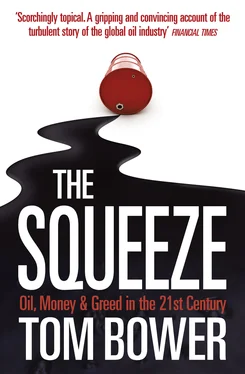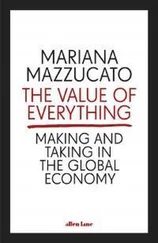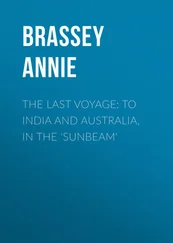The biggest profits were earned by breaking embargoes, of which none was more high-profile than that against the apartheid regime in South Africa. A company called Sigmoil, loosely connected to Philipp Brothers, dispatched laden tankers from New York to South Africa. In the middle of the Atlantic, the ships’ names were changed by rapid repainting, successfully confusing the hostile intelligence services in South Africa. In that atmosphere, Rich was looking for his own niche.
In early 1973, Rich heard rumours about a forthcoming Arab invasion of Israel. That war, he believed, would lead to an oil embargo and soaring prices. Rich was focused on Iranian oil, which in the event of war would be withheld. If he could accumulate and store Iranian oil, its value would rocket after the crisis erupted. Rich was able to find Iranian officials close to the Shah, the pro-Western dictator imposed on the country after a CIA coup in 1953, who were prepared to break their government’s agreement to supply oil exclusively to the Seven Sisters. Working in the shadows, Rich flew to inhospitable locations to supervise the loading of crude onto tankers destined for refineries in Spain and Israel and, more importantly, storage in Rotterdam. In exchange for selling the oil below the world price to Philipp Bros, but unbeknownst to the company’s directors, the Iranian officials, it is alleged, received ‘chocolates’in their Swiss bank accounts. Even the corrupt, Rich always acknowledged, were clever. In New York, however, Philipp’s directors disbelieved Rich’s information about an imminent war. Fearful of the financial risks of purchasing and storing Iranian crude, they ordered the stocks to be sold. Philipp Bros’ position has always been that they had no idea what Rich was up to.
After the October invasion, as Israel fought for survival, the oil producers met and agreed to increase prices; to prevent any supplies of weapons reaching Israel, they also imposed an embargo on Holland and the USA. In the face of queues and rationing of petrol, there was fear throughout the West of economic devastation. Richard Nixon, fighting to retain his presidency in the midst of the Watergate scandal, supported Israel against what Henry Kissinger, his secretary of state, called OPEC’s ‘political blackmail’. In retaliation after Israel’s victory, the Shah, hosting a conference of OPEC producers in Tehran in December 1973, urged even higher prices than $12 a barrel. Privately, Nixon protested about the potential ‘ catastrophic problems’ that would be caused by the ‘destabilising impact’ of the price increase. Iran, the Shah replied, needed to realise the maximum from its resources, which ‘might be finished in 30 years’. Whether the Shah believed his prophecy was uncertain, but OPEC’s new power was indisputable.
By then, Marc Rich and Pinky Green had quit Philipp Bros in fury to create a rival organisation. Registered in Zug, Switzerland, Rich’s new company used Philipp’s secrets and key staff to establish a network that spanned the globe, although the paper trail ended either in a shredder in his New York headquarters or in Zug, beyond the jurisdiction of America’s police and regulators. There was good reason for destroying the evidence. Rich’s growing empire was profiting by exploiting regulations introduced by President Nixon in 1973 to mitigate increasing oil prices and to encourage American companies to search for new oil. The regulations priced ‘old’ oil higher than ‘new’ oil. In common with many American oil traders, Rich relabelled ‘old’ oil as ‘new’. Unscrupulous traders, it was officially estimated, made about $2 billion from such practices between 1974 and 1978. Rich would claim that he, like his rivals, had exploited a loophole in badly drafted regulations. However, he had set himself apart from other traders by ostensibly operating from Switzerland, in order to evade American taxes. That might have been ignored if he had not planned to profit by exploiting a crisis in Iran, where oil workers were striking to topple the Shah, disrupting supplies. Oil prices in Rotterdam rose by 150 per cent, the harbinger of what would be called the second oil shock. Anticipating the shortage, Rich had again purchased oil for storage from corrupt Iranian officials. Among his customers was BP, the former owner of the Iranian oilfields, which was anxious to keep its refineries operating. BP’s reliance on Rich increased after the Shah was ousted from Tehran in January 1979 and replaced by the Islamic fundamentalist Ayatollah Khomeini. Fears of an oil embargo pushed prices further up.
On BP’s trading floor in London, Andy Hall watched Chris Moorhouse, the lead trader, regularly run up a flight of stairs to ask Bryan Sanderson, the director responsible for the supply department, to approve contracts to buy oil at increasingly higher prices. Over those weeks Rich resold oil which had cost between $1 and $2 a barrel for around $30. Resentful traders haphazardly tried to compete, and enviously asserted that Rich had paid for the oil with weapons. More seriously, Rich’s oil was occasionally exposed as substandard.
Refineries across the world relied on Iranian inspectors to certify the quality of the oil. Few realised how easy it was for Rich to disguise a tanker of low-quality crude. One tanker dispatched by Rich’s company to supply Uganda’s solitary power station carried, despite the inspector’s certificate, unusable ‘layered’ oil. After a day’s use the power station broke down, and the country’s electricity supply was cut off until another tanker arrived. Rich was aware that he was breaking the US embargo, but his profits were soaring. His good fortune was not welcomed by those queuing for petrol across America and Europe. Big Oil was accused of profiteering from rationing supplies, and Rich was in the firing line after the seizure on 4 November 1979 of 52 American diplomats in Tehran. His profiteering from America’s humiliation sparked a federal investigation into suspected tax evasion.
Rich’s success also aroused the interest of two independent oil traders: Oscar Wyatt, an American famous for running over anyone who got in his way, and John Deuss, alias ‘the Alligator’, a scarred buccaneer based in Bermuda, born 200 years too late. The son of a Ford plant manager in Amsterdam, Deuss’s early career as a car dealer had ended in bankruptcy. His next occupation was bartering oil between opportunistic producers and South Africa and Israel, both of which were excluded from normal trade by embargoes. From the profits he bought a refinery and 1,000 gasoline stations on America’s east coast. Compared to Marc Rich, Deuss and Wyatt were minnows. Rich’s skill, as they both appreciated, was obtaining oil by any means possible, brilliantly mastering the markets and insuring himself against losses by asking Andy Hall to legitimately hedge his daily trade against price fluctuations.
In 1980, Hall arrived in New York to run BP’s nascent trading operation. After BP’s expulsion from Iran and from Nigeria in 1979 for illegally trading with apartheid South Africa (exposed, according to BP’s executives, by Shell, which was eager to remove a rival), the company was seeking new sources of income. BP’s directors had noticed that as OPEC’s control over prices crumbled, BP could trade just for profit – buying and selling oil from other suppliers, and not just for its own use. After the discovery of oil in Nigeria in the mid-1950s and in the North Sea in 1969, the governments in London and Washington encouraged the oil companies to flood the market in order to undermine OPEC’s cartel. Hall, a novice trader, was given a short lesson on the art by Jeremy Brennan, the trader whom he was replacing. ‘To find out market prices,’ explained Brennan, ‘just tell them you want to buy when you want to sell, and that you want to sell when you want to buy. Keep good relations with the other majors and don’t squeeze.’ Hall decided to ignore the advice.
Читать дальше











![John Bruce - The Lettsomian Lectures on Diseases and Disorders of the Heart and Arteries in Middle and Advanced Life [1900-1901]](/books/749387/john-bruce-the-lettsomian-lectures-on-diseases-and-disorders-of-the-heart-and-arteries-in-middle-and-advanced-life-1900-1901-thumb.webp)
